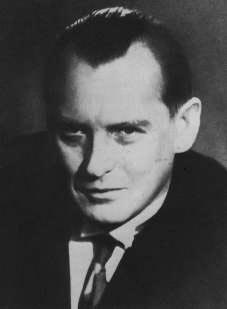Alexander Alekhine (18 October 1892 - 24 March 1946)

World Champion 1927-1935, and 1937-1946. Alekhine was born in Moscow in 1892. He was taught the rules of chess by his mother, and he soon developed an engrossing passion for the game. He played frequent correspondence chess and when in his mid-teens, started taking part in tournaments.
In 1908, he started studying Law in the Imperial High School in Moscow. When, in his later years, Alekhine returned to his studies, he obtained a doctorate in law at the Sorbonne in Paris in 1925.
Though he started out well in international chess, his results were not immediately sensational. In 1910, he placed
equal 7th at Hamburg, and he followed that by an equal 8th at
Karlsbad 1911.
His breakthrough came in
1912, at Stockholm, where he claimed first place. He was again first at
Scheveningen 1913 and in 1914 he tied for first with Nimzowitsch in the Russian super championship in St. Petersburg. This gave both the chance to play in the
much acclaimed tournament in St. Petersburg later in the year. Though he qualified to play in the finals of that tournament, he was outplayed by both his rivals Lasker and Capablanca.
After the First World War, Alekhine won the first Soviet Championship in Moscow 1920. The next year, he emigrated to Switzerland and in 1925 ultimately became a French citizen. After the war, he had a great run of tournament victories, gaining first place in the following international tournaments:
Triberg 1921, Budapest 1921,
The Hague 1921, Hastings 1922,
Karlsbad 1923, Baden-Baden 1925 and
Kecskemet 1927. In 1926 he
defeated Euwe by the score of +3 -2 =5.
Since he placed second to Capablanca in New York 1927, he was confirmed as Capablanca's greatest rival. Although the underdog in their match, he was successful in
defeating the reigning champion by +6 -3 =25.
As champion he defeated Bogoljubow in two matches,
in 1929 and
in 1934. In between these two victories, Alekhine scored two impressive tournament victories at San Remo 1930 and
Bled 1931. By now Alekhine had started drinking heavily, and this is often the cause attributed to his loss against Euwe in their
World Championship match in 1935. Alekhine was quick to recover, and he won the
return match in 1937 by +10 -4 =11.
He spent his last two years of his life in Spain and Portugal and he was trying to convince the British Chess Federation to organise a match between him and Botvinnik. Alekhine died in Estoril in 1946.
His play was very attractive to the masses, lively, brilliant where necessary, and positional at other times when tactics were uncalled for. He was also a noted chess writer, with his most important works being:
New York 1924,
My Best Games Of Chess 1908-1923 and
My Best Games Of Chess 1924-1937.